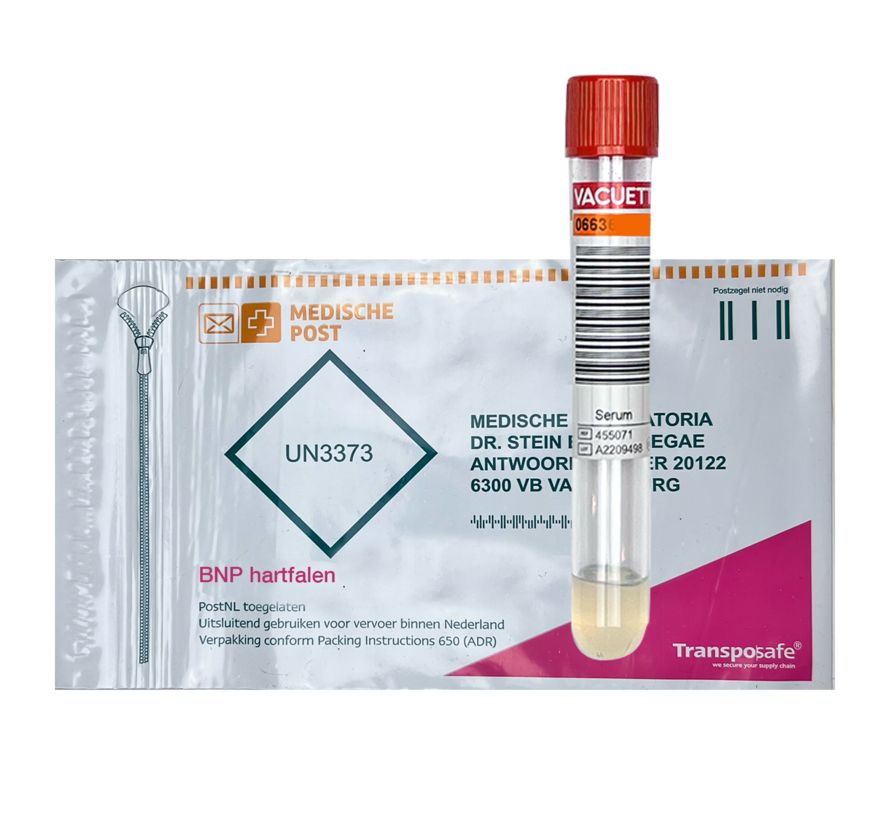GNP Heart Failure
NT-Pro-BNP, (Brain Natriuretic Propeptide) to screen for heart failure and severity in symptoms such as shortness of breath and fatigue.
BNP
(Brain Natriuremic Peptide) is a hormone made by the heart. Among other things, BNP stimulates urine production, which relieves the heart. If the heart is overloaded, BNP levels rise. With normal BNP, the risk of heart failure is very small.
BNP is a protein and is secreted by muscle cells in the ventricles when the ventricles are under increased pressure for a long time. If the BNP level in the blood is low, one can say with some certainty that heart failure is not present. If the BNP level is high, then additional testing for heart failure will be required.
BNP was first demonstrated in pig brains, but is primarily a heart hormone. So the B of "Brain" is actually wrong.
Elevated values occur in women on hormone therapy and in kidney failure/dialysis patients. This test is mainly used to distinguish heart failure from other diseases with similar symptoms, such as breathlessness, shortness of breath, tightness in the chest and the (very) frightening feeling of 'air shortage'. Shortness of breath is often experienced as a very threatening feeling and can have many causes.
It is important to note that a number of conditions affect the value of the determinations: non-cardiac causes such as COPD, atrial fibrillation, renal function disorder can cause a moderately elevated BNP. Normal values then rule out heart failure, elevated values necessitate additional diagnostics (cardiac ultrasound) to establish the diagnosis. Obesity, certain medications (diuretics, RAAS inhibitors, statins) may suppress BNP elevation. Highly elevated values of BNP and/or NT-pro-BNP indicate heart failure. The higher the values, the more severe the heart failure.
Never try to do anything yourself, but see your doctor about these symptoms.









